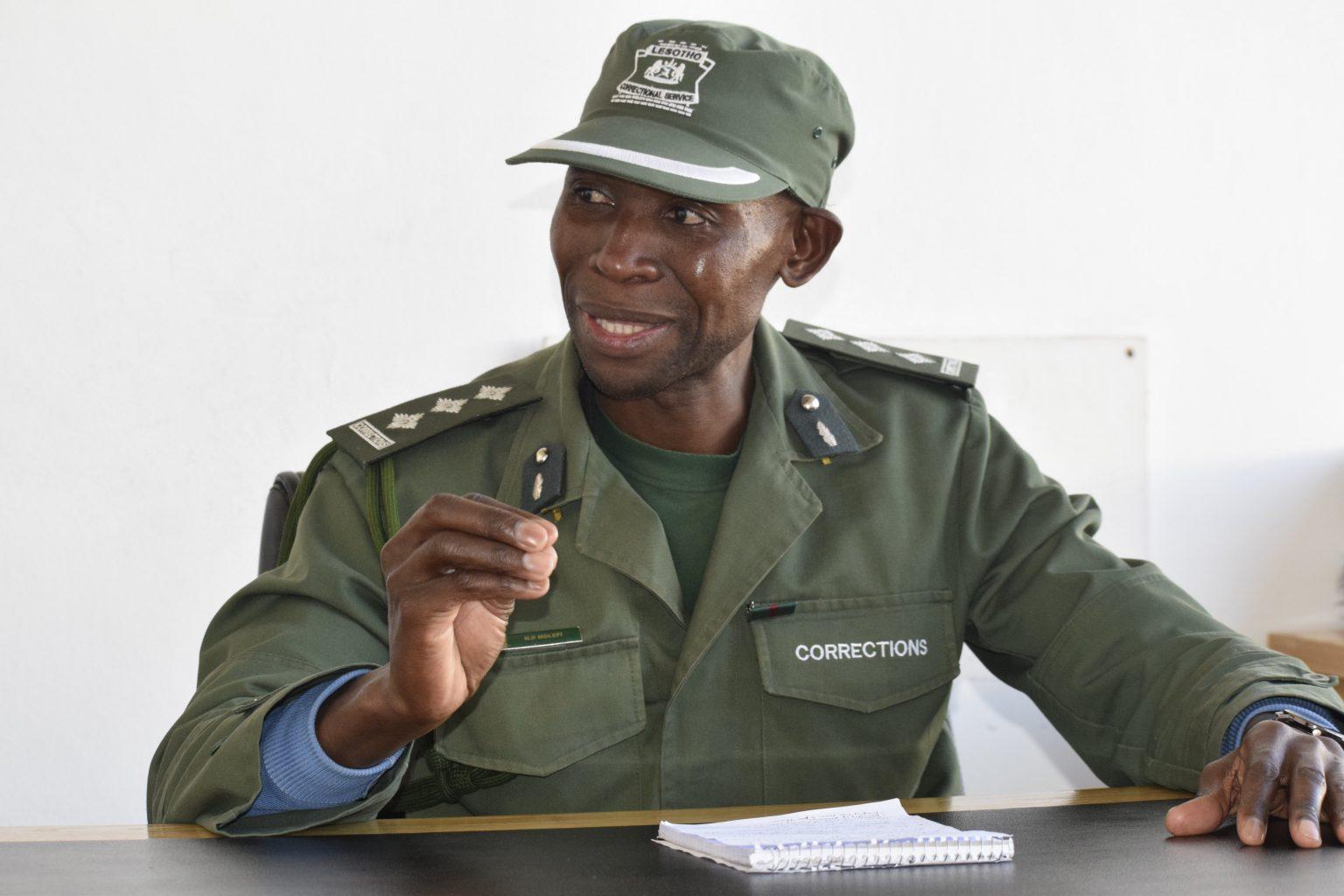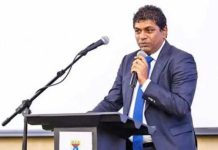Africa-Press – Lesotho. IN moments of deep grief and anguish, when the pain is raw, all one needs is a shoulder to cry on. But sometimes those tasked with providing comfort to the bereaved find themselves at a loss for words.
Numbed by the sting of death, some find themselves fumbling to find the right words. Such moments of silence provide opportunities for serious contemplation not only about the brevity of life but its meaning.
Sometimes it is just the mere presence of friends that acts as a tonic to broken souls. In an African setting, death is a communal affair. We rally behind one another in an effort to console and lessen the pain.
And when people are grieving, they need someone to speak to, to reassure them that all shall be well, in “God’s due time”. That was particularly true when the deadly Covid-19 pandemic broke out on these shores early last year, sending the entire nation of 2 million people into panic.
As the smell of death wafted across communities, there was palpable fear all over. In search for answers, some turned to religion, surrendering their lives into the hands of God. For some, religion seemed to offer the only cogent explanation of what was happening.
It was under those circumstances that Ntholeng Daniel Molefi, 46, often found himself face-to-face with people who were thrown into grief, consoling the bereaved while providing hope to those in despair.
Molefi is an Assistant Superintendent and head of the Chaplaincy Unit in the Lesotho Correctional Service (LCS). He says when tragedy strikes, he makes sure that he is around, with the affected families’ blessing, to provide psycho spiritual support.
“We call that the ministry of presence,” he says.
“I would just be there in their time of need.
He says when he speaks to the bereaved, he is quite clear in his sermons that “God is not the source of evil; I tell them that death is an enemy, it is not a messenger from God.
” While he provides counselling to others, he is at pains to highlight the fact that he is no “superman”. He says he is a mortal man, with emotions and weaknesses like everybody else. Molefi cites the case of his own brother who died in 2007.
Although his brother died 14 years ago, in a fatal road accident along the Maseru-Roma road, the wound is still fresh. He says while he was still trying to process the news of his loss, a colleague told him that he must practise what he always told them at funerals – that he must be strong.
That hit him hard. “Some think you are an ‘Iron Man’ and that you don’t feel pain,” he says. He says that is wrong. When duty calls, Molefi digs in God’s Word the Bible to find verses to comfort the grieving.
The burden of expectations can be overwhelming though. “It is a very challenging task to transform man when I am a sinner myself,” he says. But tough as that might be, he still does all he can within his limited power “to do God’s work”.
“I am expected to listen to people’s emotional challenges and handle issues that are sometimes deeply personal.
It’s tiring, it’s exhausting psychologically and emotionally,” he says. Sometimes he finds himself dealing with people’s marital issues, which can be deeply personal.
Sometimes he has to handle socio-economic or work-related issues that could equally sap his energy, leaving him emotionally drained. “They can be taxing on me as a person.
I have to pray with them and counsel them. This is not an easy job. ” While dealing with all such issues, the people still expect to see you “walk the talk” and “practise what you preach.
” He says his job is to give hope to colleagues and prison inmates so that when they leave prison they are better members of society.
“They must leave the correctional institution in a healthy state.
`“Our main objective is to transform the lives of prison inmates as stated in our mission statement.
We want to rehabilitate the offenders so that they can go back to their communities as changed people. ” “We want them to be people who are industrious in their communities.
We want them to be law-abiding citizens. ” As a chaplain, Molefi says his plate is always full. “I pray with inmates and staff. When they have lost loved ones, it is my duty to provide grief counselling.
” He conducts memorial services for LCS staff and preside at funerals where necessary.
“The message I deliver is a message of hope,” he says.
Yet in consoling the bereaved Molefi remains painfully aware that he “cannot fully comprehend the pain of those who would have lost loved ones”. “Death is a very personal experience,” he says.
“I tell them that it is only God who can comfort them and heal them, not circumstances, not time.
“While time might help us cope eventually, it does not heal the pain of death.
“I do not minimise the sting of death.
As Africans we often say, ‘ho tla loka (that all will be well), and that God will give you another child, if you have lost a child. “I don’t say that. No child can replace another child who has died. ”
Molefi says to win the battle for the souls of the prison inmates, they realised that the transformation must start in the heart, which he says is “deceptively wicked”, quoting the Book of Jeremiah in the Bible.
“All crimes come from the heart and so we knew there was no way we could transform lives without involving God.
We realised that we could not transform lives unless we reached their hearts. ” Molefi is adamant that “no man can change a person, only God can do that”.
“In all our interventions to rehabilitate offenders, we have to involve God.
” It is that deep, strong faith in his convictions that drives Molefi in all what he does.
Even when he was still young, Molefi says he knew he had this special calling to be a pastor, to shepherd “the flock of God”. “I felt this was my calling even when I was still very young.
As a prison chaplain, Molefi’s job has taken a totally new dimension with new challenges in the wake of the devastating Covid-19 pandemic that continues to mow down people around the world.
When the disease began killing people in Lesotho, it brought a sense of gloom and doom as well as panic in society. “People were scared, they were afraid because the virus is deadly.
We had to go out there to all correctional facilities to address that fear, that hopelessness,” he says. Molefi says the Covid-19 pandemic is not just a health issue; it is affecting people psychologically.
The pandemic had a “very negative impact on people’s mental health and we had to go out there to provide psycho-social support”. He says in caring for his pastoral duties, he has always realised that virtually no section of society has not been touched by the pandemic in some way.
While others have been terribly sick, others have lost dear loved ones. But Molefi did not always want to be a pastor growing up in Mafeteng in the early 1980’s.
As he grew up, it appeared as if every young boy wanted to go out and work in the mines in South Africa or join the army. Joining the army was seen as a demonstration of true masculinity, that you were strong and a real man, some kind of macho thing among boys in the village.
That appealed to his young self and saw the young Molefi dreaming about serving his country in the military. Those who had gone to the mines in South Africa also appeared to have made it, what with their fancy dressing and beautiful gadgets they would bring home!
That too made an impression on his young mind. But as fate would have it, Molefi realised he was destined for a special calling when he joined the then Lesotho Prison Service as a correctional officer in October 2000.
He was to soon realise that this was where he belongs, not in the military and certainly not digging for gold in the “dungeons” of “Mother Earth” some five hundred kilometres away from home.
Thanks to what he says is his solid Christian upbringing, Molefi found himself drifting towards pastoral work within the prison institution, with some of his friends teasing him as “Ntate Moruti”.
“My mother taught me to develop the Christian personality and planted the seed of serving God.
“And when I got here, I found a captive audience, people who were already confined, ready to listen.
I realised that this is where God had called me, to preach a message of hope, to the incarcerated. ” Despite all that they do to reform offenders, sometimes they too fail. Some prisoners, after spending years in prison, are released only to be arrested again for other serious offences.
He says the problem of recidivism, when offenders commit serious crimes again, is quite common in Lesotho’s prisons, attributing such incidents to difficult socio-economic backgrounds of some of the offenders.
Some are rejected by the community and commit further crimes, only to be thrown back into prison where they “find a home where the ground is level”. “Once a prisoner, you are always a prisoner in the eyes of some.
” Molefi holds a Masters of Management Sciences in Public Administration (Peacebuilding) from the Durban University of Technology.
His thesis was on restorative justice and focused on the re-integration of inmates into communities. Every Sunday, Molefi has a one hour slot on Radio Lesotho called Fountain of Hope where he talks about family issues.
He also provides counselling to those who are grieving. He says every day, he gets calls and messages on his phone from people thanking him about some of the subjects he would have talked about on radio.
That must be deeply satisfying. Molefi, who was born in 1976 in Ha-Motlere in Mafeteng, had a very difficult childhood. His father, who died when he was 10, worked as a salesman at a shop run by a white businessman, Mr Scott, were salaries were extremely poor.
To supplement the family’s meagre income, his mother would sell fish and chips on the streets of Mafeteng. While other young boys would be out in the playgrounds, the young Molefi would find himself joining his mother on the streets of Mafeteng selling foodstuffs.
It was a brutal life. But it taught him the values of hard work and sacrifice. “Life was never easy. This was a very difficult period in our lives but God saw us through,” he says. Molefi also holds a BA in Theology from Helderberg College, a Seventh Day Adventist institution in Cape Town. He specialised in pastoral care.
For More News And Analysis About Lesotho Follow Africa-Press






